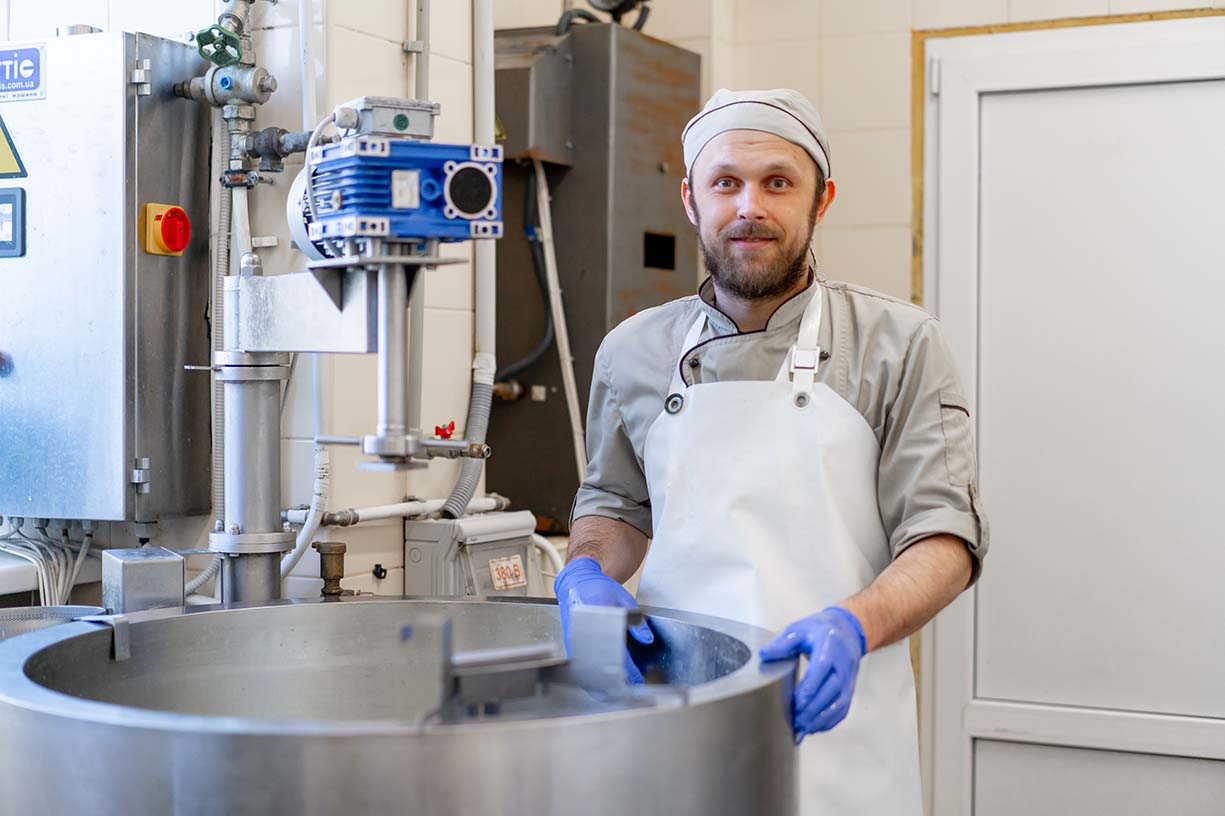Value of a Small Specialty Food Manufacturer: 7 Key Factors Buyers Look At

When you are running a small specialty food business, it’s more than just recipes. Other considerations such as branding, distribution, and consistent customer demand are all equally important to bringing customers through the doors. When the time comes for you to attract buyers, knowing your small food manufacturer valuation is critical. Buyers are looking at more than just your profit margins. They will evaluate a mix of both tangible and intangible factors that in combination determine long-term potential.
We’ve worked with food manufacturers ranging from local donut shops with multiple retail outlets to craft breweries that were looking to scale production and distribution. One thing these businesses all had in common was that their true worth was shaped by more than just their equipment or recipes.
Buyers today will be looking at 7 key factors before making an offer. As a business owner, understanding what these factors are can help you maximize your food business valuation.
1. Most Important: Financial Performance and Earnings Quality
The most important factor of any small food manufacturer appraisal is the financials. Buyers will look closely at your business’s revenue trends, margins, and the sustainability of cash flow. So, here’s what this means in practice:
- Revenue Growth: Consistent year-over-year increases are what send strong signals to the buyers. For example, a valuation can show that sales grew steadily from under $2 million to nearly $2.5 million over four years which can further boost credibility with potential buyers.
- Margins: Specialty food companies that have premium pricing can often showcase stronger gross margins than their competition.
- Normalized Earnings: Appraisers may adjust reported profits to remove certain things like personal expenses, unusual one-time costs, or non-market arrangement.
Why it Matters: Without having clean and transparent financials, even a well-loved brand may see its valuation discounted in the eyes of the buyer.
[INLINE_CTA]
2. Brand Strength and Customer Loyalty
In a small food manufacturer valuation, brand equity is often the largest intangible asset. While it’s hard to measure directly, its impact shows up clearly in the financials. A company that has a strong brand with loyal customers often showcase larger margins. The reason for this is because buyers are willing to pay a premium for products they trust and love. So, let’s break this down further:
- Customer Loyalty: Repeating purchases and a steady demand translate into more predictable cash flow and shows healthier gross margins.
- Recognition and Awards: Accolades or certifications not only look good on paper but can reinforce pricing power and strengthen perceived value.
- Digital Presence: Having a strong online following and positive reviews provide social proof. This can further reinforce and sustain premium pricing and customer stickiness.
Why it Matters: Buyers know that strong brands protect and promote profitability. When margins are higher than industry averages, it’s a sign of customer loyalty and brand recognition. This is why it’s an important driver for long-term growth and in turn your valuation.
3. Distribution Channels and Scalability
How do your products reach customers? This is a critical question for a food business valuation. Buyer’s may ask: “Is the business limited to a single retail location, or does it have scalable distribution? ”It’s especially apparent when it’s tied to a direct increase in your business’s revenue. For this reason, it’s important to consider the following:
- Multi-Channel Sales: Direct-to-consumer online sales, catering, and wholesale grocery accounts are all great looks for diversifying revenue.
- Growth Capacity: A business with proven wholesale or franchise will appeal to buyers looking for scale.
- Market Reach: We appraised companies that served both local walk-in-traffic and regional wholesale clients, which strengthened buyers’ interest due to their larger reach.
Why it Matters: The more channels that your food products can successfully move through, the higher your valuation multiple may climb.

4. Production Capacity and Operations Efficiency
Operational strength can directly influence small food manufacturer appraisal results. The reason for this is that buyers want to know if production can keep up with demand without a major investment.
Key considerations are:
- Facility and Equipment: Modern and compliant equipment can reduce capital expenditure needs for buyers.
- Labor Structure: An overreliance on an owner or single employee can lower value in the eyes of a buyer. Standardized processes can actually raise it.
- Supply Chain Stability: Do you have consistent ingredient sourcing? What about protection against price volatility? Answering yes to these questions will further reassure buyers.
Why it Matters: In one valuation we did for a brewery, doubling production capacity had significantly enhanced market positioning. Specialty food manufacturers that scale operations can expect similar valuation benefits.

5. Compliance and Certifications
In the United States, food is one of the most regulated industries. Buyers will be paying close attention to whether compliance and certifications are in place and up to date.
- Health and Safety Standards: FDA, USDA, and local code compliance are non-negotiable.
- Certifications: Having labels like organic, gluten-free, or non-GMO all expand the customer reach and further justify premium pricing.
- Legal Exposure: Businesses with a history of strong compliance will reduce risk for buyers and look more desirable.
Why it Matters: A business that maintains compliance and holds the right certifications signals reliability and growth potential. This lowers its risk profile, enhances buyer confidence, and can directly improve food business valuation outcomes.
6. Customer Base and Sales Diversity
Customer concentration risk can be a real concern for many small food businesses. Wallstreetprep.com defines this as:
“Customer Concentration refers to the risk attributable to a company’s revenue being too reliant on a small subset of customers. Simply put, customer concentration risk stems from the potential loss of a customer that contributes a significant proportion of a company’s total revenue.”
Buyers will look for:
- Diverse Revenue Streams: Retail, wholesale, catering, and online sales.
- Stable Contracts: Having recurring purchase orders or distribution agreements are highly valued in an appraisal.
- Customer Mix: It’s important to have a diversified customer base with both local and wholesale accounts. The reason for this is it spreads risk.
Why it Matters: We’ve seen firsthand how businesses with broad consumer bases, like specialty shops combining direct retail with wholesale to restaurants, achieve stronger valuations.
7.Growth Potential and Market Trends
Finally, buyers don’t just want to purchase what exists today. They are looking to invest in the company’s future. Having strong growth potential is what often drives the difference between an average and exceptional small food manufacturer appraisal.
Areas that can excite buyers include:
- New Products: Expanding flavors, packaging formats, and/or product lines.
- Geographic Expansion: Moving beyond just your local markets to a regional or even national distribution is a huge plus.
- Consumer Trends: Aligning with premium niche markets such as plant-based or health-conscious trends can raise valuation multiples.
Why it Matters: Businesses that tapped into rising demand for premium beverages and artisanal foods have captured higher market multiples in our past valuations
Valuation Approaches Used in Food Manufacturing
Our certified appraisers use multiple methods for triangulating a business’s fair value:
- Income Approach: Based on a business’s expected future cash flow discounted for risk.
- Market Approach: Compares sales of similar food and beverage companies in your market.
- Asset Approach: Adds up what the business owns and subtracts what it owes.
For food manufacturing valuations, there is a heavy reliance on the income and market approaches as they reflect both the earnings and market dynamics for your business.
[INLINE_CTA]
Why Work with Certified Appraisers
At BizWorth, we don’t generate cookie-cutter reports. Our appraisers are NACVA-certified, and our certified reports are compliant with professional standards like USPAP and IRS rulings. By working with professionals such as ours you’ll get:
- A defensible valuation accepted by lenders and buyers.
- Adjustments that account for owner-specific expenses or related-party arrangements.
- A roadmap for improving your business’s value, not just a static number.
Know Your Value Before Buyers Ask
For specialty food manufacturers like you, a valuation is more than just numbers. It tells the story of your business – your brand, your operations, and ultimately, your future. Buyers will consider your financials, but they’ll also look hard at your business’s growth potential, compliance, and brand strength.
By focusing on these seven key factors, owners such as yourself can increase buyer confidence and improve your own small food manufacturer valuation.
Are you ready to take flight and discover what your business is worth? Start your small food manufacturer appraisal with BizWorth today.


